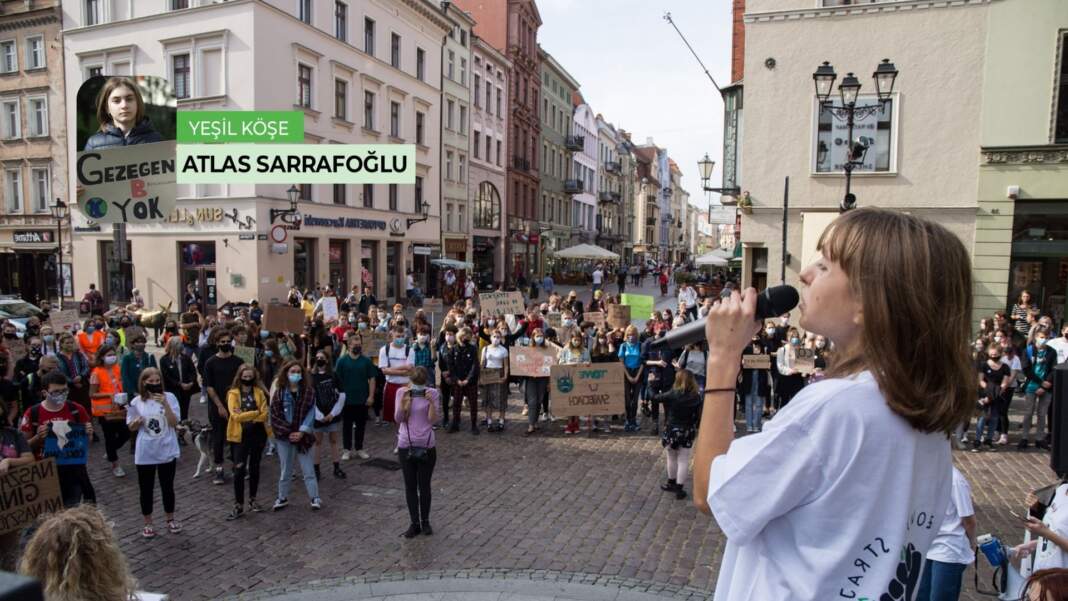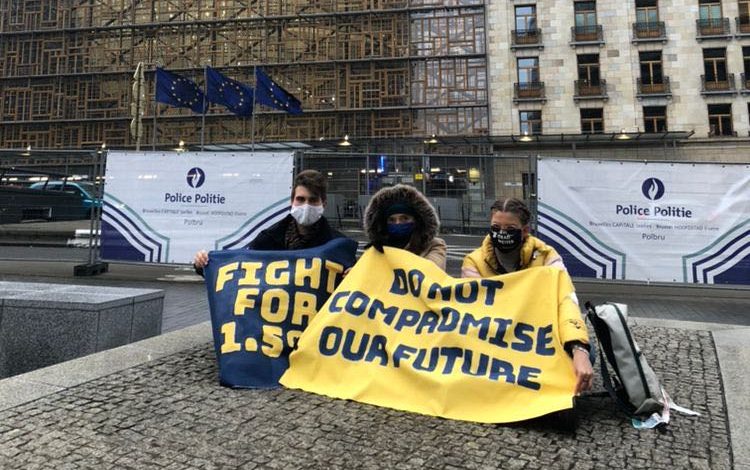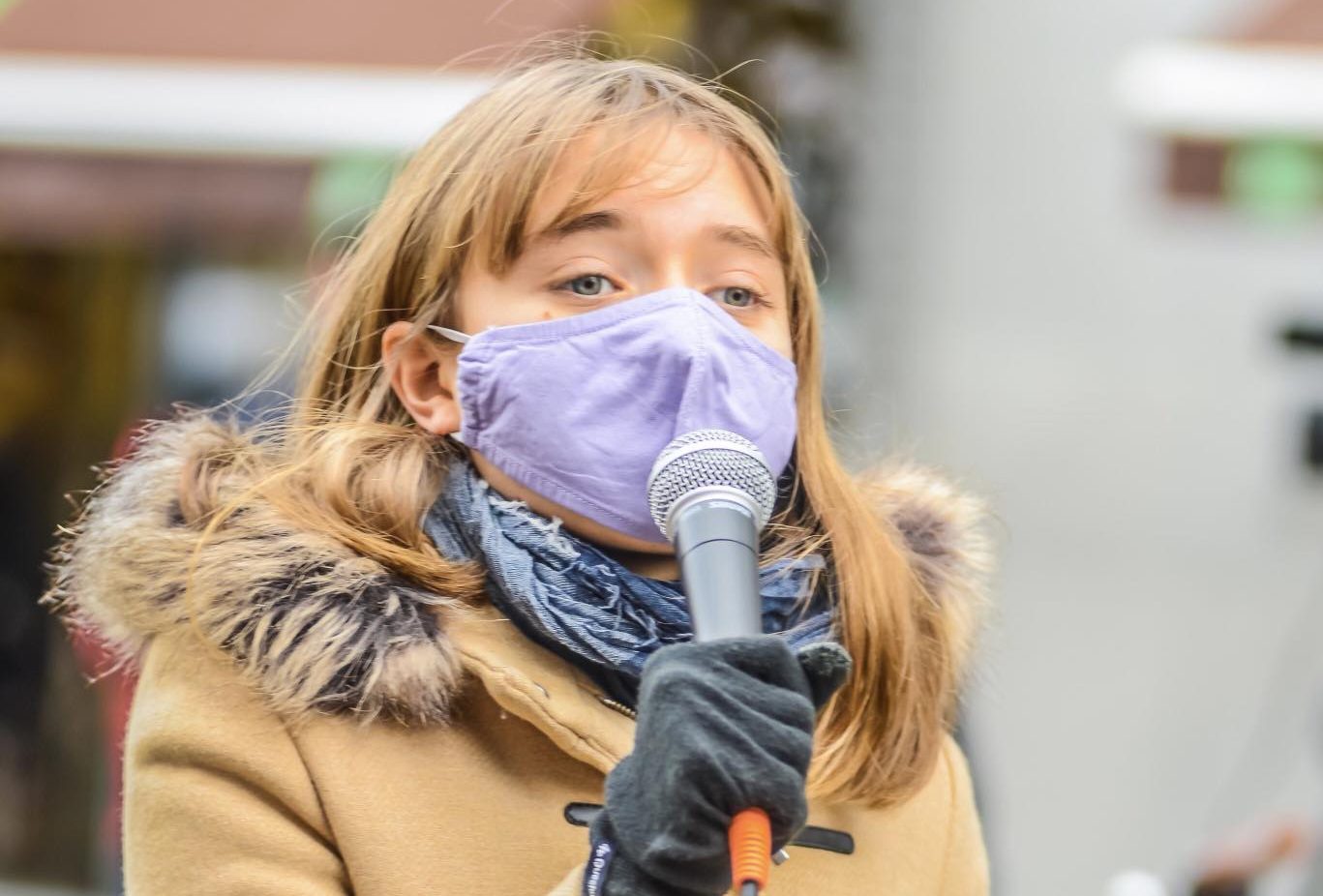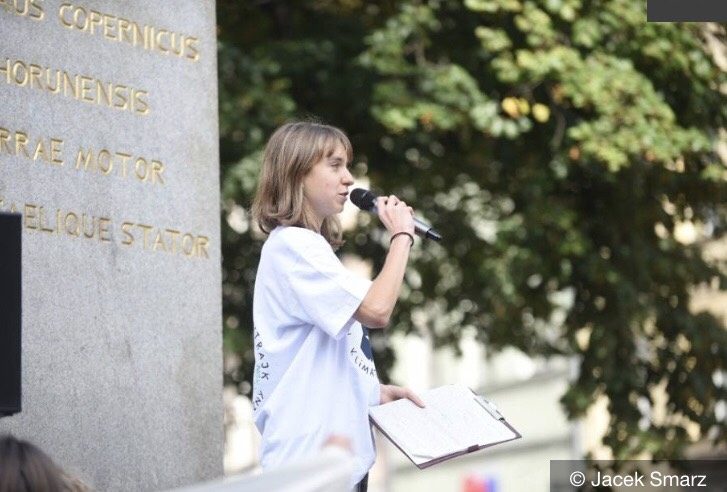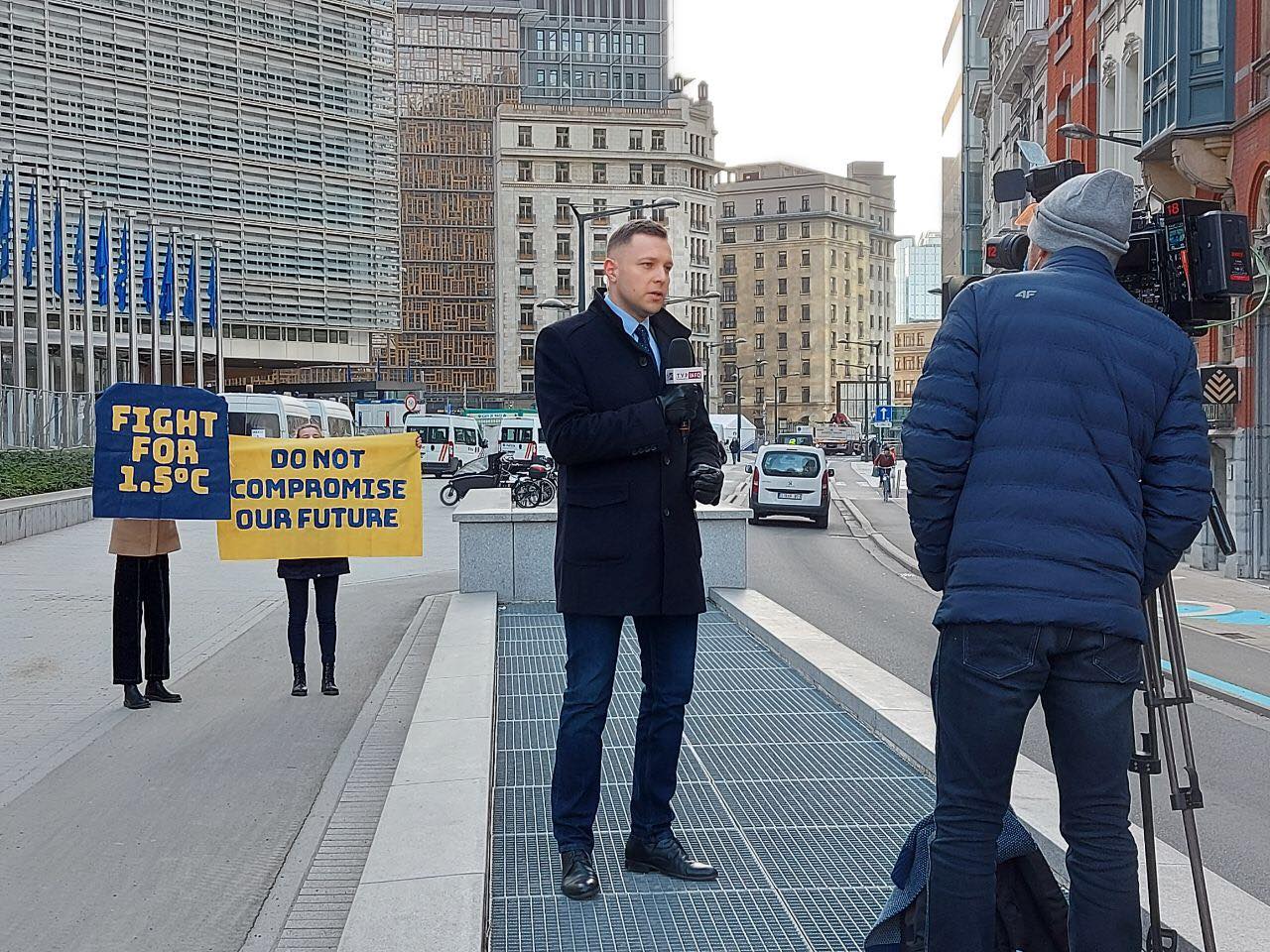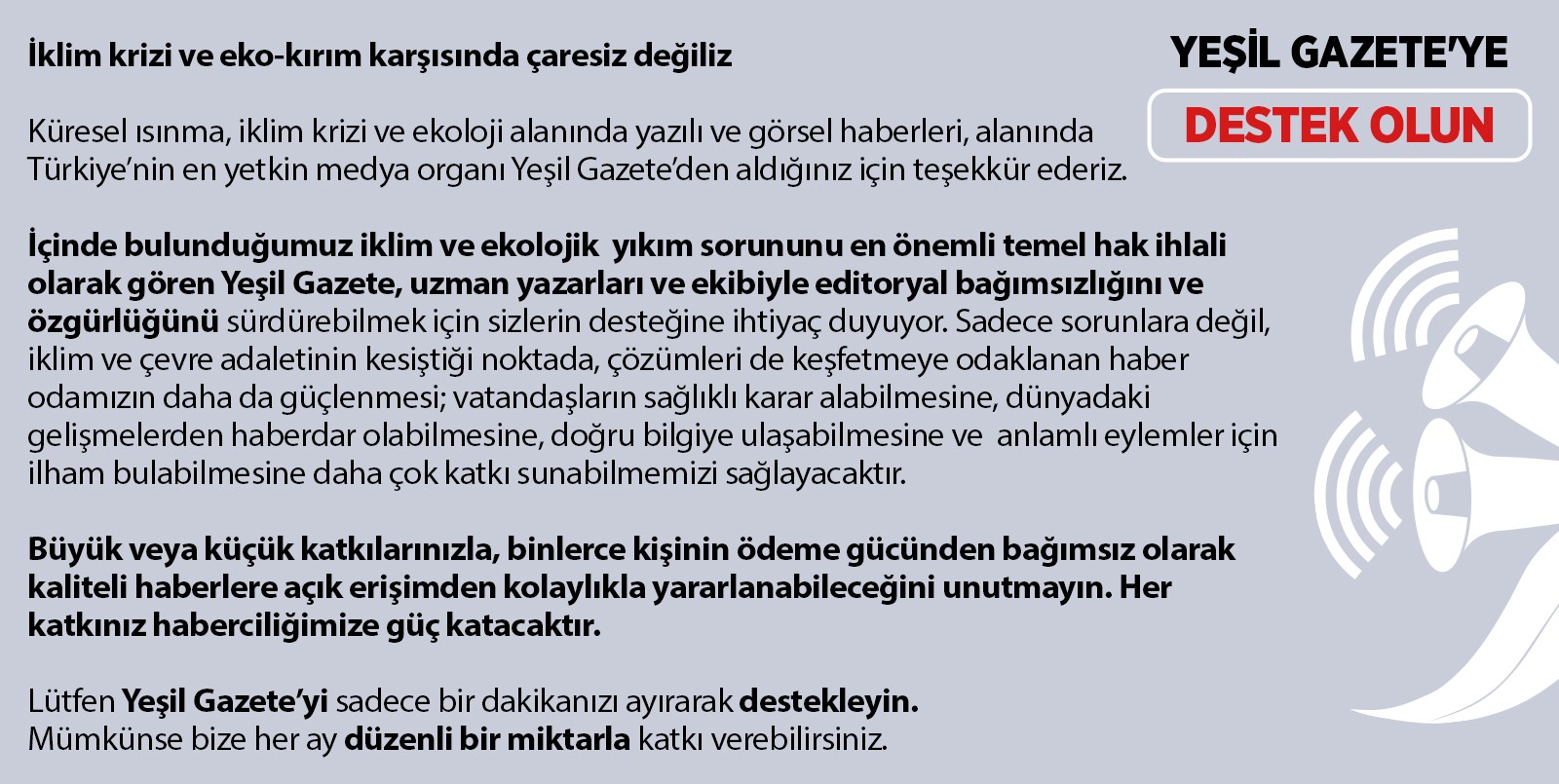Maya Özbayoğlu is a 17-year-old climate activist born in the US, raised in Poland and Turkey. She is active in FFF Poland and Youth For Climate Turkey. She started her activism journey at the age of 15. Since then she has participated in and organized several strikes, worked on multiple campaigns, attended many lectures, workshops and camps such as Greenpeace Changemakers Action Camp.
She is also very passionate about the philosophical aspects of the climate crisis and has been writing about it for a while. Her works have been published in the local newspaper as well as the national one. On a more fun note, she is a happy dog owner, her name is Zelda and if she doesn’t do work for school or activism you can find her going on a walk or playing with her.
‘Doing the best we can is no more an option, we have to strive towards the impossible’ – Greta Thunberg. I’m not sure if this is the exact wording, although the sense is the same. I love this quote so much, because it truly reflects the challenge we’re facing – either we achieve a utopian world or we sentence all life on Earth to a life in hell.
Atlas: What was the motive and the inspiration of your activism when you decided to become a climate activist?
Maya: I am not able to point out an exact period in my life, in which I decided to become a climate activist. It wasn’t like I watched a documentary or read a terrifying article about how bad it actually is, it was more of a process of educating myself, meeting new people and me realising that I am actually becoming a climate activist.
Of course, after watching Al Gore’s ,,Inconvenient Truth” or Leonardo di Caprio’s ,,Before the Flood” I was so overwhelmed with everything, I couldn’t believe that we had already contributed to this much harm, but at the time, I wasn’t really familiar with the word activism and didn’t really know a lot of ways in which I could actually contribute to change, to be honest.
‘Activism is the single most powerful tool’
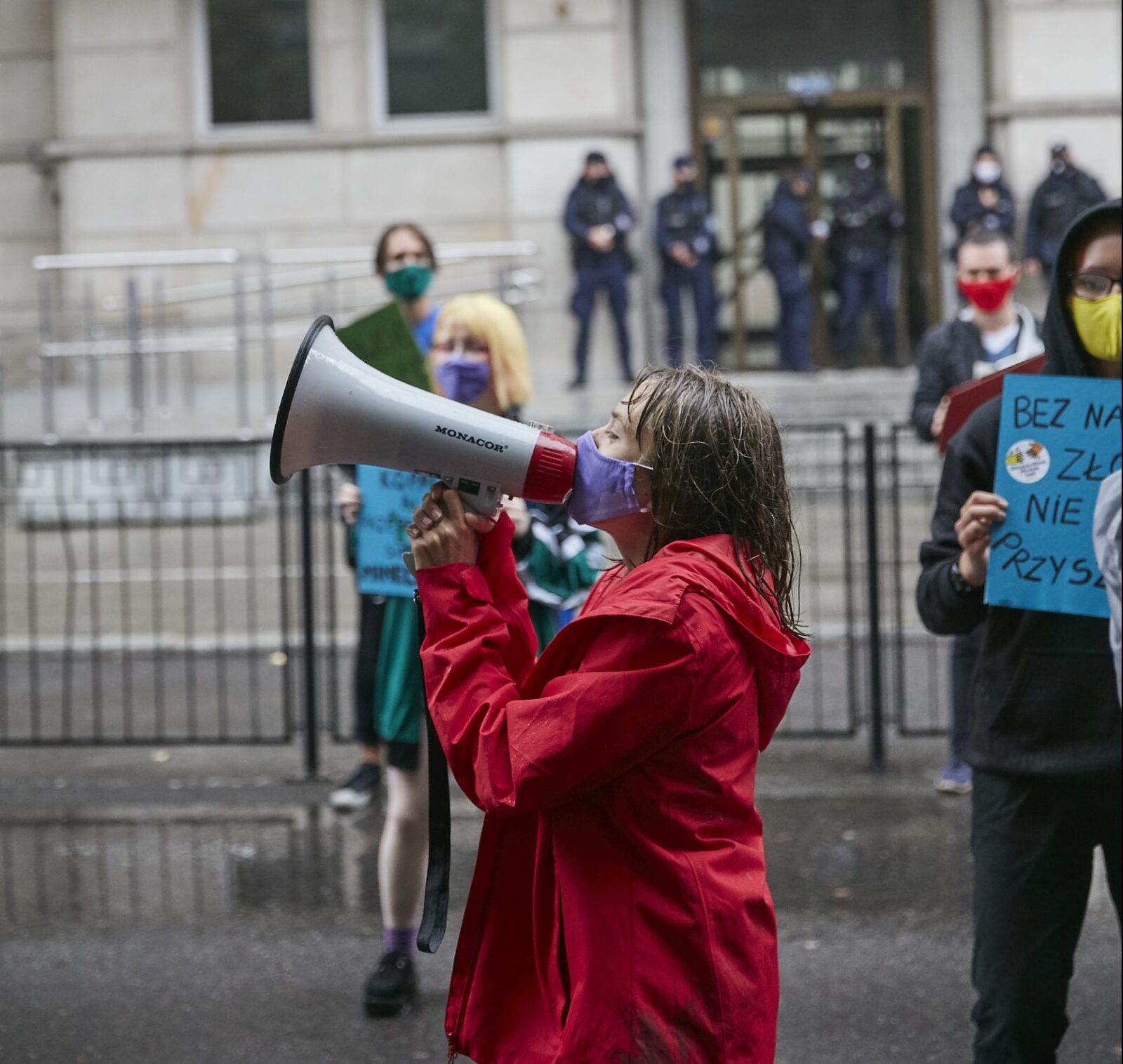 After a while of getting myself more educated, meeting other activists and attending different workshops, I realised that activism is the single most powerful tool anyone can utilise in order to help humanity tackle the climate crisis.
After a while of getting myself more educated, meeting other activists and attending different workshops, I realised that activism is the single most powerful tool anyone can utilise in order to help humanity tackle the climate crisis.
I couldn’t believe that our own species have contributed to a disaster on such a scale, but to an even greater extent, I couldn’t believe that despite the fact that all the necessary science was laid in front of us decades ago, we still haven’t treated this existential crisis as an emergency. I just couldn’t bear this thought and as I educated myself more and more I realised that the only way I can address this paradox is through activism. So when I finally got to a point of knowing what activism actually meant, the real work started.
‘The police are acting more brutally’
What kind of challenges do you face about your activism?
The political situation in Poland is really unstable at the moment. With more and more people taking to the streets opposing the government, the police are acting more brutally. Often very young people, people my age, are getting arrested, beaten up or treated with pepper spray only because of the fact that they were protesting against the anti-human rights government.
I have also been written down by the police after attending a climate strike. One of our activists from FFF Poland has been recently sentenced in detention due to breaking an environmental law, whereas he was only speaking from a megaphone for a short period of time. The situation is so unstable, that you just never know the day and the hour in which the police can come into your house and inspect whether you have any confidential news.
Do you get support from your family, friends and school, if so how do they support you?
Yes! I definitely do get support from my family and my friends, mostly activist friends. They lift me up whenever I feel down or more climate depressed than usual.
They also provide me with such great support when it comes to stressful police situations. They are just the best, and I couldn’t be more grateful for having such people by my side.
You are half Polish half Turkish, active both in FFF Poland and YFC Turkey and you have been active with a lot of campaigns and working groups. How has your life changed since you became a climate activist? What are the cons and pros of being so active in the movement?
My life has changed drastically. I don’t want to scare anyone, although if you really want to become an active youth activist, you have to devote most of your free time to do activism work, because school already takes us a lot of time and work. I consider myself more of an introvert, so making the transition to becoming a climate activist and spending more time on calls, thinking about campaigns, writing press releases, etc. wasn’t that challenging for me as I didn’t have much of a social life even before.
Although the truth is that there are moments where I feel like having a family movie night or something similar to that, but the work that has to be done stops me from doing so. It’s overwhelming at times, BUT it is so worth it, trust me. To be honest, with the knowledge I have today, I couldn’t not be a climate activist, because otherwise I would just complain about the inaction of politicians and might get into a sort of climate depression. Although the best advantage you can get out of becoming a climate activist is the bonds you make, the other tremendously inspiring people you meet and from whom you take out life’s most important lessons. Climate activism is a wonderful journey, the benefits far more outweigh the cons, so I welcome anyone to join our ride.
‘The government doesn’t treat us seriously’
What is the perception of the government for climate activists like you? Are you in contact with decision makers for climate issues? What are your demands for them?
The Polish government doesn’t treat us, climate activists, seriously, despite us gaining a lot of attention and recognition in the public’s eye. As FFF Poland, we have sent several letters and pledges to politicians although to most of them we haven’t even received an answer. That is how the Polish government treats the climate emergency – it basically ignores the issue, moves it to the second background.
Our demands have been the same since the forming of our movement – immediate climate action in line with the best available science and factoring in justice. The sad truth is that, until we don’t gain recognition in the eyes of those in power, our demands will only remain as demands.
‘I try to focus on the time being’
How do you envision yourself and the world in general in 2030? Do you think we will be successful in turning this wrong system around?
This is a very tough question. I haven’t really thought about this to be honest. I try not to think about the future and focus on the time being, because ultimately we won’t tackle the climate crisis by thinking of and setting far off dates, but by taking real action today.
That’s why I try not to even imagine what the world might look like in 5 years time or even 10 years, as it is stated in the question. To answer this I would have to declare whether I am an optimist or a pessimist, although I really don’t want to do that so that I don’t disencourage anyone to become a climate activist.
‘We should inform people about green-washed solutions’
What do you think is necessary to bring people awareness about the climate crisis? What do you think we should do individually and as a movement for this?
I think the awareness about the climate crisis itself is quite high among our communities nowadays. This has happened thanks to the hard work of so many individuals, movements and organizations throughout the last decades. What I think is necessary today is informing the public about the loopholes hiding behind politicians’ greenwashed solutions and empty words.
Right now what I see as a more dangerous phenomenon is that by setting goals for 2030 and 2050 world leaders give the impression that sufficient action is being taken, although that’s not the case. I see our role as climate activists and as whole movements in uncovering those hidden loopholes, educating our societies of the actual state that such policies might put us into and widening our view on the climate crisis by connecting the dots and seeing the climate crisis as an intersectional crisis as it is.
‘Biggest issues are water shortages and drought’
What do you think is the biggest climate issue in your country where you reside?
I think the biggest issues would include water shortages and the bigger frequency of droughts. This opinion of mine comes from the fact that Poland has very little water resources and is one of the countries facing a deficit.
We know that water is essential to maintain any sort of life, that’s why the deprivation of it will lead to catastrophic consequences.

